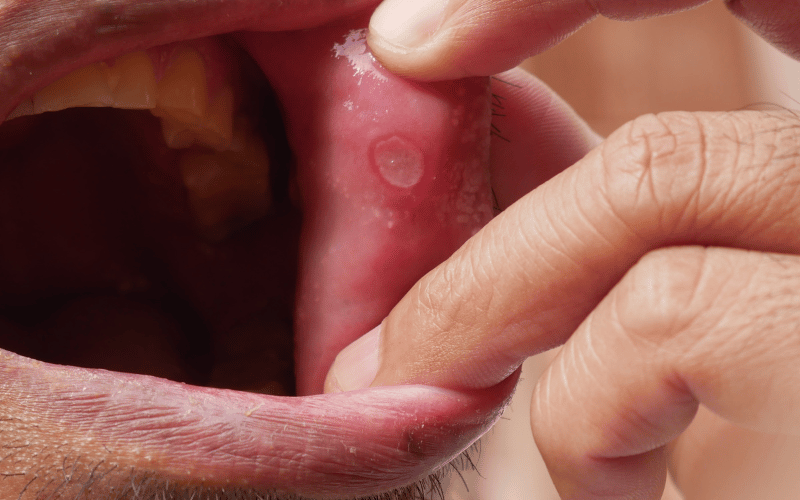Introduction: Understanding Mouth Ulcers
It’s a common experience: you’re enjoying a meal or a drink, and suddenly, there’s a sharp sting in your mouth. Upon inspection, you discover a painful little white or yellowish sore surrounded by an inflamed red border – the dreaded mouth ulcer. We’ve all been there. Whether it’s that spicy dish you indulged in, an accidental bite to the inside of your cheek, or the bristles of a tough toothbrush, these sores can quickly become the bane of your existence.

At best, they’re uncomfortable. At worst, they make basic actions like eating, drinking, and talking a painful ordeal. Even though most mouth ulcers, often called canker sores, are harmless and tend to heal on their own, their presence can significantly affect our day-to-day life. But what if there were ways to speed up this healing process?
Over-the-counter treatments, home remedies, prescription medications – the choices are abundant. But which ones truly work? And more importantly, which ones work best for you? The world of mouth ulcer treatments can be overwhelming. The plethora of options, combined with the pain and inconvenience of the ulcers themselves, can make treatment seem more complicated than it is.
That’s where this article comes in. We’ve scoured the available treatments, sifted through scientific studies, and even delved into old home remedies to present you with the top 10 ways to treat mouth ulcers effectively. So, buckle up and get ready for a smoother, more comfortable oral future!
Method 1: Salt Water Rinse

Mouth ulcers can be a frustrating ordeal, and sometimes the simplest solutions are the most effective. A salt water rinse is one such remedy, proven by generations. The hypertonic nature of salt water draws out the excess fluid from the ulcer, reducing inflammation and promoting faster healing.
Salt possesses natural antiseptic properties. When you introduce salt to an environment like the inside of your mouth, it acts against harmful microbes, potentially preventing secondary infections around the ulcer region.
Preparing a salt water rinse is straightforward. Take a teaspoon of table salt and dissolve it in about half a cup of warm water. Make sure the solution is well mixed. Once prepared, take a mouthful and swish vigorously, ensuring the solution comes into contact with the ulcer. After a few minutes, spit it out.
For best results, it’s recommended to perform a salt water rinse 2-3 times daily. However, avoid overdoing it, as too much salt can potentially irritate the oral cavity further. If you notice increased irritation or sensitivity, reduce the frequency or consider another treatment method.(1)